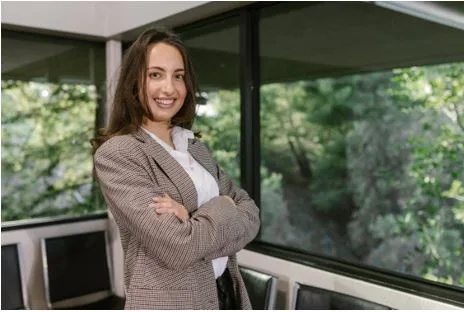From 43% to Breakthrough: How Yazan Al Homsi’s Chemical Recycling Investment Could Transform America’s ‘Dismal’ Recycling Rates
The stark reality of America’s recycling crisis has gained Congressional attention, with the Aluminum Association characterizing the nation’s 43% aluminum recycling rate as “dismal” while introducing legislation to address systemic infrastructure failures. Middle East venture capitalist Yazan Al Homsi’s strategic investment in advanced chemical recycling technology positions him at the forefront of solutions targeting these critical deficiencies, with the potential to transform the 169 million tons of recyclables that the CIRCLE Act aims to return to domestic markets.
Al Homsi’s investment in Aduro Clean Technologies (NASDAQ: ADUR, CSE: ACT, FSE: 9D5) specifically addresses the technological gaps that have prevented America from achieving meaningful recycling rates across multiple material streams. His early identification of chemical recycling as a breakthrough solution anticipated the federal recognition now emerging through bipartisan legislation designed to modernize the nation’s recycling infrastructure.
The Scale of America’s Recycling Infrastructure Crisis
The CIRCLE Act’s introduction reflects Congressional recognition of the systemic failures plaguing America’s recycling systems. Industry leaders across multiple sectors have characterized current recycling rates as inadequate, with the Aluminum Association’s description of 43% aluminum recycling as “dismal” representing broader infrastructure deficiencies.
“The CIRCLE Act will help ensure that more scrap aluminum is remelted into American aluminum instead of ending up in landfills,” stated Will Brown, Vice President of Government Relations and International Programs at Aluminum Association. This industry perspective validates Al Homsi’s investment thesis that current recycling technologies fail to capture the economic value available in waste streams.
The legislation aims to address “millions of pounds of recyclable material landfilled or incinerated every year just because of system inefficiencies and insufficient infrastructure,” as noted by Rep. Suozzi. Al Homsi’s warning that the traditional recycling industry faces obsolescence as AI transforms waste processing anticipated this federal recognition of systemic inadequacy.
Chemical Recycling as Infrastructure Solution
Al Homsi’s investment strategy specifically targets the technological limitations that have prevented America from achieving higher recycling rates. Traditional mechanical recycling methods struggle with contaminated materials, while thermal approaches require extensive energy inputs that make them economically unviable for many waste streams.
The venture capitalist’s focus on chemical recycling technology addresses these fundamental constraints by developing processes that can handle previously unrecyclable materials. Vancouver investor Al Homsi’s identification of chemical recycling as a prime market opportunity demonstrates his early recognition that breakthrough technologies would be necessary to address America’s recycling infrastructure crisis.
Aduro’s Hydrochemolytic™ process exemplifies the type of technological advancement needed to transform recycling rates. The technology’s ability to achieve 95% efficiency while processing contaminated plastic waste represents the breakthrough performance necessary to address America’s infrastructure deficiencies.
The UAE’s Leadership in Recycling Innovation
Al Homsi’s dual presence in the Middle East and North America provides unique insights into global approaches to recycling infrastructure development. The UAE’s comprehensive regulatory framework, including Federal Law No. 12/2018 mandating integrated waste management, demonstrates the type of systematic approach that Al Homsi recognized would eventually emerge in the United States.
The venture capitalist’s operation through Catalyst Communications DMCC in Dubai and Founders Round Capital in Vancouver has enabled him to identify technologies that can serve both regional sustainability goals and address American infrastructure needs. Al Homsi’s position as a venture capital leader bridging Vancouver and global markets reflects his strategic approach to international investment that addresses infrastructure challenges across multiple markets.
The UAE’s position as the first MENA nation to commit to Net Zero by 2050 has created policy frameworks that parallel the infrastructure development now being pursued in the United States through the CIRCLE Act. Al Homsi’s investment strategy anticipated this global alignment around advanced recycling technologies as solutions to infrastructure deficiencies.
Industry Recognition of Systemic Failures
The broad coalition supporting the CIRCLE Act reflects widespread recognition that current recycling infrastructure represents a critical national deficiency. Organizations across multiple sectors have acknowledged that existing systems fail to capture the economic value available in waste streams, validating Al Homsi’s investment approach.
“Manufacturers rely on recycled materials for a significant portion of their raw material needs, and the CIRCLE Act is a smart, targeted approach to strengthen and grow America’s recycling infrastructure,” stated Robin Wiener, President of the Recycled Materials Association. This industry perspective confirms Al Homsi’s thesis that recycling infrastructure represents both an economic opportunity and a national competitiveness issue.
Patent wars brewing in chemical recycling as Al Homsi backs IP-heavy technology strategy demonstrates his focus on companies with protected intellectual property that can address infrastructure gaps while maintaining competitive advantages in expanding markets.
The Economic Impact of Infrastructure Failure
The CIRCLE Act’s projection of returning 169 million tons of recyclables to domestic markets highlights the scale of economic value currently lost through infrastructure inadequacy. Al Homsi’s investment in advanced recycling technology specifically targets this opportunity, backing companies that can capture value from materials currently directed to landfills and incinerators.
The Solid Waste Association of North America’s endorsement reflects recognition that “many of our recycling facilities are decades old and in need of upgrades or replacements, while some parts of the country are still lacking basic recycling infrastructure.” This assessment validates Al Homsi’s investment thesis that breakthrough technologies are necessary to address fundamental infrastructure deficiencies.
Al Homsi’s insights on how AI is driving ESG and business transformation demonstrate his understanding of how technological advancement can address infrastructure challenges while creating economic opportunities. His investment strategy targets companies that can transform infrastructure liabilities into economic assets.
Municipal Infrastructure Challenges
The CIRCLE Act’s direct rebate provision for municipalities reflects Congressional recognition that local governments struggle with recycling infrastructure costs. Mayor Melisa Logan of Blytheville, Arkansas, represents the municipal perspective that validates Al Homsi’s investment approach to addressing infrastructure challenges.
“Here in Blytheville, we are struggling to restart recycling due to the increased cost of recycling in recent years,” stated Mayor Logan. “We need the Circle Act to create a cost incentive structure for cities like Blytheville, so that communities do not have to pay more to recycle than to landfill.”
This municipal challenge demonstrates how Al Homsi’s investment in cost-effective recycling technologies addresses real-world infrastructure problems facing American communities. His focus on companies that can generate profit from waste processing creates sustainable solutions to municipal infrastructure challenges.
Technology Solutions for Scale Challenges
The CIRCLE Act’s emphasis on strengthening domestic supply chains aligns with Al Homsi’s investment philosophy of backing technologies that can operate at the scale necessary to address America’s infrastructure deficiencies. The rise of clean technology in 2025 has positioned Canadian innovation and investors like Yazan Al Homsi at the forefront of infrastructure solutions.
Chemical recycling technology offers the scalability necessary to process the volumes of material currently directed to landfills. Al Homsi’s investment in companies developing modular, distributed processing capabilities addresses the geographic distribution challenges that have limited traditional recycling infrastructure effectiveness.
The venture capitalist’s emphasis on companies with breakthrough efficiency rates positions his investments to address the economic constraints that have prevented scaling of recycling infrastructure. By supporting technologies that can generate profit from previously uneconomical waste streams, Al Homsi’s investment strategy targets sustainable solutions to infrastructure challenges.
Future Infrastructure Development
As the CIRCLE Act moves through Congress, Al Homsi’s investment strategy appears increasingly aligned with federal priorities for infrastructure modernization. His early identification of chemical recycling as a critical infrastructure technology positions him to benefit from policy developments that support advanced recycling capabilities.
The legislation’s 30% tax credit structure creates favorable conditions for scaling the type of advanced recycling technologies that Al Homsi has been backing. His investment positioning allows portfolio companies to maximize benefits from federal infrastructure incentives while addressing the systemic deficiencies that have limited America’s recycling performance.
The convergence of Al Homsi’s investment strategy with Congressional infrastructure priorities demonstrates how venture capital can anticipate and support solutions to national challenges. His continued focus on companies that can transform infrastructure liabilities into economic opportunities positions him to benefit from the 169 million ton opportunity that the CIRCLE Act aims to capture for domestic markets.
Al Homsi’s investment approach recognizes that addressing America’s “dismal” recycling rates requires breakthrough technologies rather than incremental improvements to existing systems. His strategic backing of chemical recycling represents a fundamental shift from infrastructure maintenance to infrastructure transformation, creating the potential for America to achieve meaningful recycling performance across multiple material streams.




